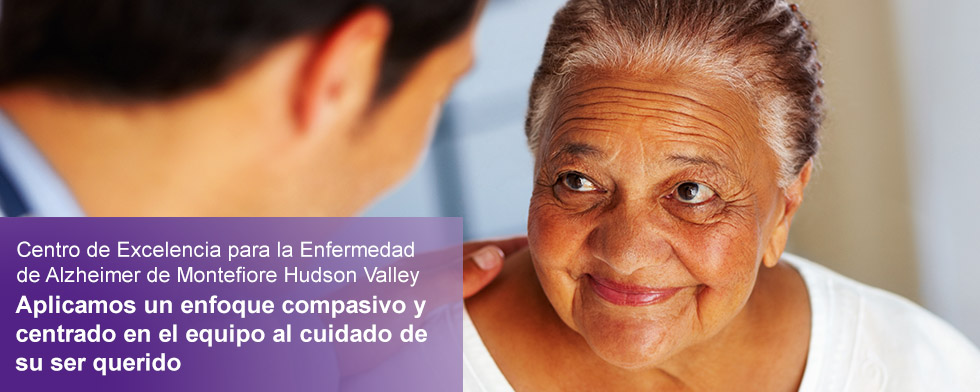Servicios para los pacientes y sus cuidadores
El CEAD brinda servicios de diagnóstico y apoyo, asesoramiento, educación y asistencia de servicios comunitarios para personas con enfermedad de Alzheimer y demencias relacionadas, sus cuidadores y sus familiares.
En el Centro para el Envejecimiento Cerebral de Montefiore, se le realizará una evaluación que incluye una revisión de su historia clínica y los medicamentos que toma, un examen físico completo, y pruebas de memoria y otras funciones cognitivas. Es posible que le pidan realizarse algunos análisis de sangre y, quizás, un estudio de imágenes por resonancia magnética (IMR) o una tomografía computarizada (TC) del cerebro. Para esto, deberá asistir a la consulta médica varias veces. Algunas consultas podrán ser virtuales mediante una conexión segura de telemedicina.
Al final del proceso de evaluación, los médicos del Centro para el Envejecimiento Cerebral prepararán un informe completo con recomendaciones para usted y su médico de atención primaria o el especialista que lo remitió al CAB.
Los miembros del equipo revisarán el plan de atención con usted y su cuidador o sus familiares y le brindarán información sobre los servicios comunitarios que pueden ser útiles. También pueden comentarle sobre ciertos estudios de investigación en los que puede participar, si le interesa hacerlo. De vez en cuando, los miembros del equipo se pondrán en contacto con usted y su cuidador o sus familiares por teléfono o telesalud para hablar sobre sus necesidades y para determinar si se deben hacer cambios en su plan de atención.
Los cuidadores y los familiares se consideran una parte fundamental del equipo de atención del paciente, y sus necesidades e inquietudes se abordan durante el proceso de evaluación. Recomendamos a los familiares asistir a las consultas presenciales o por video siempre que puedan.
Fuera del CAB, los proveedores que forman parte de la red del CEAD le brindarán servicios similares cuando lo necesite.
Para obtener más información sobre el CAB, haga clic aquí. El CAB se encuentra en 6 Executive Plaza, Suite 297, Yonkers, NY 10701. Haga clic aquí para ver un mapa y las indicaciones de cómo llegar.
Para programar una consulta o solicitar una consulta por telesalud, o para encontrar un médico que atienda cerca de su hogar, llame al CAB al 914-375-4880.

